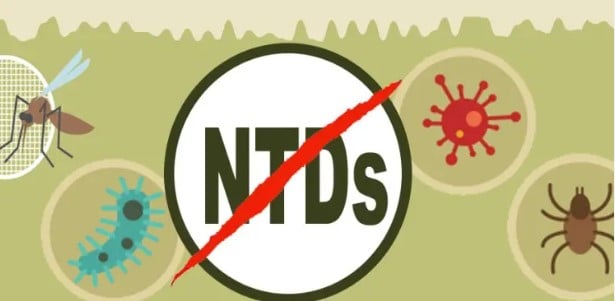Hauwa Abubakar, North-East zonal coordinator of Neglected Tropical Diseases (NTDs) at the Federal Ministry of Health and Social Welfare, has warned that NTDs significantly impair children’s learning ability and overall school performance.
Speaking during a media dialogue on NTDs in, Bauchi, Abubakar said the diseases not only stunt children’s growth and learning capacity but also reduce adults’ economic productivity and their ability to provide for their families.
She noted that without sustained control efforts, many communities risk remaining trapped in a cycle of disease and poverty. According to her, NTDs cause household income losses, leading to poor educational outcomes, malnutrition, weakened immunity, and increased vulnerability to other infections.
“NTDs contribute to stunting, low birth weight, poor food security, and stigmatisation,” she said, adding that infected mothers often struggle to breastfeed adequately while children are sometimes forced to act as guides for visually impaired relatives.
Abubakar explained that the diseases are transmitted through multiple channels, including mosquitoes, flies, other insects, and contact with contaminated soil or water.
Read also: Bauchi to distribute five million mosquito nets in 2026
In her remarks, Rafique Nuzhat, Chief of Field Office, United Nations Children’s Fund (UNICEF) Bauchi, commended the facilitators and participants for their engagement in the fight against NTDs.
She emphasised the crucial role of the media in driving social change, noting that “the media remain the backbone of every society—they can either make or break change.”
Nuzhat urged government authorities to strengthen access to clean water and sanitation facilities, end open defecation, and promote hygienic practices at both household and community levels.
She called for increased government investment in clean water supply to help curb the spread of NTDs in Bauchi state and across Nigeria.









